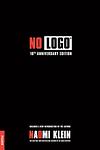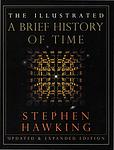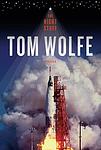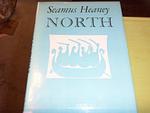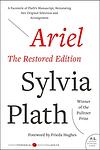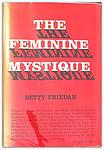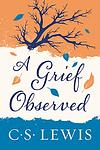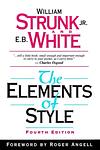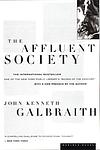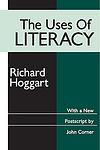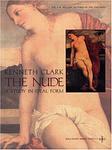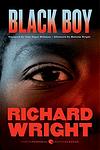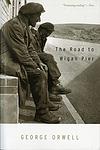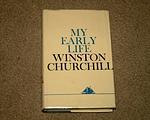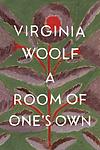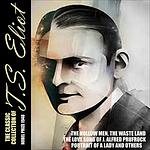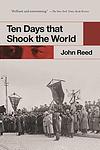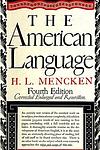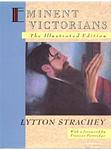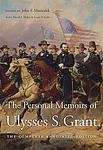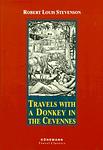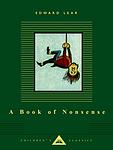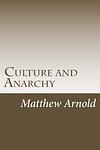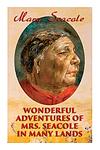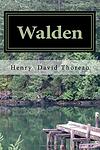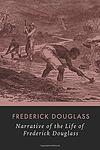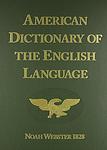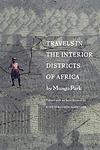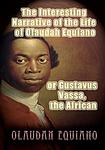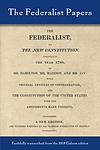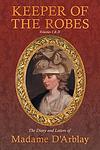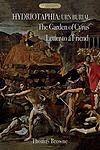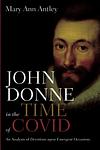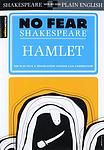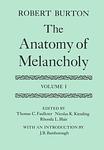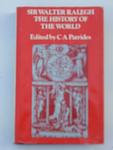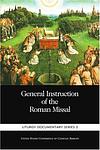The 100 Best Nonfiction Books of All Time
This is one of the 284 lists we use to generate our main The Greatest Books list.
-
The Sixth Extinction: An Unnatural History by Elizabeth Kolbert
The book explores the concept of the sixth extinction, suggesting that we are currently in the midst of it due to human activity. By examining previous mass extinctions and the current rapid loss of species, the author argues that humans are causing a mass extinction event through climate change, habitat destruction, and spreading of non-native species. The book offers a sobering look at the impact of human behavior on the natural world, emphasizing the urgency of addressing these environmental issues.
-
The Year of Magical Thinking by Joan Didion
This book is a raw and honest exploration of grief and mourning, written by a woman who lost her husband of 40 years to a heart attack while their only child lay comatose in the hospital. The narrative delves into the year following her husband's death, a year marked by grief, confusion, and a desperate hope for things to return to normal. The author's poignant reflections on death, love, and loss serve as a powerful testament to the resilience of the human spirit.
-
No Logo by Naomi Klein
This book explores the negative effects of corporate branding and globalization. It critiques the marketing strategies of large corporations, arguing that they exploit workers and manipulate consumers. The author also discusses how these corporations have a significant influence on culture and public space. The book suggests that consumer activism and grassroots movements can serve as effective counter-forces to corporate power.
-
Birthday Letters by Ted Hughes
"Birthday Letters" is a collection of 88 poetic works that serve as a deeply personal reflection on the author's tumultuous relationship with his late wife. The poems, written over a span of 25 years but not published until after her death, depict the intense passion, emotional struggles, and heartbreaking tragedy that marked their life together. Through his evocative storytelling, the author provides a raw and intimate glimpse into his own psyche and the profound impact their relationship had on his life.
-
Dreams from My Father by Barack Obama
This memoir explores the life of a man who grew up in a multicultural family, with a Kenyan father and an American mother. The narrative delves into his early years in Hawaii and Indonesia, his self-discovery and racial awakening in Chicago, and his journey to Kenya to learn more about his father's heritage. The book provides an introspective look at the author's struggle with his racial identity, his relationship with his family, and his path to finding his place in the world.
-
A Brief History of Time by Stephen Hawking
A Brief History of Time is a popular science book that explores a broad range of topics in cosmology, including the Big Bang, black holes, light cones and superstring theory. The author does not shy away from complex theories and concepts, but explains them in a way that is accessible to non-scientific readers. The book also discusses the possibility of time travel and the boundaries of scientific knowledge. Throughout, the author emphasizes the ongoing quest for a unifying theory that can combine quantum mechanics and general relativity into one all-encompassing, coherent theoretical framework.
-
The Right Stuff by Tom Wolfe
"The Right Stuff" is a non-fiction novel that explores the lives and experiences of the first Project Mercury astronauts selected for the NASA space program in the 1960s. The book delves into the personal and professional lives of these astronauts, highlighting their courage, competitiveness, and the immense pressure they faced. It also provides a detailed account of the space race between the United States and the Soviet Union during the Cold War era.
-
Orientalism by Edward W. Said
This book is a critical examination of Western attitudes towards the East, particularly the Middle East, and how these attitudes have shaped and continue to shape Western policies and perceptions. The author argues that the West has a long history of viewing the East as the "other," exotic and inferior, and that this view has been institutionalized through academic disciplines, literature, and media. This "Orientalism," as the author calls it, has served to justify colonialism and imperialism, and continues to influence Western attitudes and policies towards the East today.
-
Dispatches by Michael Herr
This book is a first-hand account of the Vietnam War from a war correspondent's perspective. The author vividly describes the chaos, violence, and absurdity of the war, providing a raw and unfiltered look at the experiences of soldiers on the ground. The narrative is filled with gritty details and intense imagery, capturing the fear, boredom, and disillusionment that characterized the war. The book is considered a classic of war reportage, lauded for its honest and brutal portrayal of the realities of combat.
-
The Selfish Gene by Richard Dawkins
This groundbreaking book presents a revolutionary perspective on the theory of natural selection. The author argues that genes, rather than individuals or species, are the true units of evolution. He suggests that these 'selfish' genes are driven by their own survival, leading to complex behaviors and characteristics in the organisms they inhabit. This work reframes our understanding of evolution, emphasizing the gene's role in shaping biological life and behavior.
-
North by Seamus Heaney
"North" is a collection of poems that delve into the history and culture of Ireland, exploring themes of violence, conflict, and the struggle for identity. The poems draw on Irish mythology, archaeology, and the contemporary reality of the Troubles to create a powerful and evocative portrait of a nation in turmoil. The collection is notable for its deeply personal and introspective tone, as well as its rich, vivid imagery and masterful use of language.
-
Awakenings by Oliver Sacks
The book is a poignant exploration of a group of patients who contracted sleeping-sickness during the great epidemic just after World War I. Frozen for decades in a trance-like state, these men and women were given up as hopeless until 1969, when a brilliant neurologist started treating them with a new drug, L-DOPA, which enabled them to come back to life. The work delves into the profound nature of being human, the complex relationship between the body and mind, the beauty of the physical world, and the transformative power of medicine.
-
The Female Eunuch by Germaine Greer
This book is a seminal feminist text that explores the oppression of women in society. It critiques the traditional roles and expectations of women in the mid-20th century, arguing that societal norms and conventions force women into a secondary, submissive role, effectively castrating them. The book encourages women to reject these norms and to embrace their own sexual liberation, arguing for the need for a revolution in the way women perceive themselves and their place in society.
-
Awopbopaloobop Alopbamboom: The Golden Age of Rock by Nik Cohn
This book is a lively and passionate chronicle of the rise and impact of rock 'n' roll music during its golden age. The author provides a detailed examination of the genre's evolution, highlighting the contributions of iconic artists and bands. The book is filled with personal anecdotes, critical analysis, and vivid descriptions of concerts and cultural moments, providing an immersive and insightful look into the world of rock 'n' roll.
-
The Double Helix: A Personal Account of the Discovery of the Structure of DNA by James D. Watson
This book is a personal account of the race to discover the structure of DNA, told from the perspective of one of the co-discoverers. It provides an insider's view of scientific research, the collaboration and competition, the dedication, the doubt, the exhilaration of discovery, and the often fraught relationship between science and the rest of life. The book also explores the personalities, quirks, and conflicts of the scientists involved in the groundbreaking discovery.
-
Against Interpretation by Susan Sontag
This book is a collection of essays that challenge the traditional methods of interpretation and criticism of art and culture. The author argues that in our attempt to interpret and find deeper meaning, we often overlook the sensory experience of the work itself. The book encourages readers to experience art in its raw form, focusing on the form, color, and sounds, rather than trying to decipher a hidden meaning. It is a call for a new, more direct approach to consuming art and culture.
-
Ariel by Sylvia Plath
"Ariel" is a collection of poetry which explores the complexities of the human psyche, mental health, female identity, and the personal struggles of life. The poems are known for their vivid and often disturbing imagery, reflecting the author's own experiences with depression and suicidal thoughts. The collection is also notable for its exploration of the author's relationship with her father, her feelings of betrayal and abandonment, and her struggles with motherhood.
-
The Feminine Mystique by Betty Friedan
This groundbreaking book is a sociological examination of the dissatisfaction felt by American housewives in the mid-20th century. The author argues that women are not naturally fulfilled by devoting their lives to homemaking and child-rearing, challenging the widely accepted belief of the era. It explores the idea of the "problem that has no name" - the widespread unhappiness of women in the 1950s and early 1960s. The book is considered one of the catalysts of the second-wave feminist movement.
-
The Making of the English Working Class by E. P. Thompson
This book is a comprehensive historical analysis of the formation of the English working class from the late 18th century to the mid-19th century. The author meticulously examines various aspects of society including the Industrial Revolution, the rise of Methodism, and political movements, arguing that the working class was not a byproduct of economic factors alone, but was actively self-formed through struggles over issues like workers' rights and political representation. The book is widely regarded as a seminal text in social history due to its focus on the experiences and agency of ordinary people.
-
Silent Spring by Rachel Carson
This influential environmental science book presents a detailed and passionate argument against the overuse of pesticides in the mid-20th century. The author meticulously describes the harmful effects of these chemicals on the environment, particularly on birds, hence the metaphor of a 'silent spring' without bird song. The book played a significant role in advancing the global environmental movement and led to a nationwide ban on DDT and other pesticides in the United States.
-
The Structure of Scientific Revolutions by Thomas Kuhn
This influential book examines the history of science, focusing on the process of scientific revolutions. The author argues that scientific progress is not a linear, continuous accumulation of knowledge, but rather a series of peaceful interludes punctuated by intellectually violent revolutions. During these revolutions, known as paradigm shifts, the old scientific worldview is replaced by a new one. The book also popularized the term 'paradigm shift' and challenged the previously accepted view of science as a steadily progressive discipline.
-
Grief Observed by C. S. Lewis
This book is an intimate exploration of a man's grief after the loss of his wife. The author delves deeply into the nature of grief, faith, and love, questioning his own beliefs and grappling with profound feelings of loss and sorrow. With raw honesty, he shares his journey through the various stages of grief, ultimately finding a renewed sense of faith and understanding of God's role in human suffering.
-
The Elements of Style by E. B. White, William Strunk Jr.
This book is a definitive guide and classic manual on the principles of English language read by millions of readers. The 18 main topics are organized under headings such as Elementary Rules of Usage, Elementary Principles of Composition, A Few Matters of Form, Words and Expressions Commonly Misused, and An Approach to Style. The book's unique tone, wit and charm have conveyed the principles of English style to millions of readers, making it a beloved resource for those who want to write clear, correct and effective prose.
-
The Affluent Society by John Kenneth Galbraith
"The Affluent Society" is a socio-economic critique that challenges the conventional wisdom of the time that economic growth leads to public wealth. The author argues that in reality, the increasing wealth of the United States has led to greater private affluence but public squalor due to inadequate investment in public goods and services. He proposes that society should strive for sustainable development rather than unlimited material advancement. The book has been influential in economic thought, particularly in the areas of public policy and consumer behavior.
-
The Uses of Literacy by Richard Hoggart
"The Uses of Literacy" is a sociological study that explores the impact of mass media and popular culture on traditional working-class values and communities in Britain during the mid-20th century. The author combines personal memoir with scholarly analysis to examine how the spread of American consumer culture and the rise of mass media have influenced British society, especially among the working class. The book serves as a critique of the commercialization of culture and the erosion of authentic, local cultures and traditions.
-
Notes of a Native Son by James Baldwin
This book is a collection of essays that vividly capture the author's life in Harlem, his travels in Europe, and his views on everything from the sweet music of black church revivals to the biting prejudice of the 'then' contemporary world. It's an exploration of racial, sexual, and class distinctions in both Western societies and the American society. The author's reflections on his experiences as a black man in white America are profoundly insightful and continue to resonate today.
-
The Nude: A Study in Ideal Form by Kenneth Clark
"The Nude: A Study in Ideal Form" is an exploration of the portrayal of the human body in art. The author analyzes the evolution of the nude form from ancient Greece to the modern era, discussing the cultural, philosophical, and aesthetic factors that have shaped its representation. The book examines the concept of 'ideal beauty', the symbolism of nudity, and the artistic techniques used to convey the human form, providing a comprehensive and insightful look into one of the most enduring themes in art history.
-
The Hedgehog and the Fox by Isaiah Berlin
"The Hedgehog and the Fox" is an essay that presents a philosophical and intellectual dichotomy based on a line from an ancient Greek poet, "The fox knows many things, but the hedgehog knows one big thing." The author uses this concept to categorize thinkers and writers into two groups: hedgehogs, who view the world through the lens of a single defining idea, and foxes, who draw on a wide variety of experiences and for whom the world cannot be boiled down to a single idea. The author uses this framework to analyze the works of various historical figures and philosophers.
-
Waiting for Godot by Samuel Beckett
"Waiting for Godot" is a play that explores themes of existentialism, despair, and the human condition through the story of two characters, Vladimir and Estragon, who wait endlessly for a man named Godot, who never arrives. While they wait, they engage in a variety of discussions and encounter three other characters. The play is characterized by its minimalistic setting and lack of a traditional plot, leaving much to interpretation.
-
A Book of Mediterranean Food by Elizabeth David
This book is a comprehensive guide to Mediterranean cuisine, offering a wide variety of recipes from different regions. It presents an array of dishes from simple to elaborate, using fresh, local ingredients characteristic of the Mediterranean diet. The author's in-depth knowledge and passion for the region's food culture are evident in the detailed descriptions and historical context provided for each recipe. The book also includes personal anecdotes, making it an informative and enjoyable read for food lovers.
-
The Great Tradition by F. R. Leavis
"The Great Tradition" is a critical analysis of the English novel, focusing on the works of authors such as Jane Austen, George Eliot, Henry James, and Joseph Conrad. The book argues that these authors represent the pinnacle of the English novel tradition, as they all share a moral seriousness and a deep concern with the complexities of life and character. The book is renowned for its rigorous and highly subjective criticism, which has shaped literary studies and continues to influence the way we read and evaluate novels.
-
The Last Days of Hitler by Hugh Trevor-Roper
This book delves into the final days of Adolf Hitler's life, providing a detailed account of the events that unfolded in his bunker during the last ten days of World War II. It is based on interviews with surviving members of Hitler's close circle and other witnesses, as well as captured German documents. The author presents an in-depth analysis of Hitler's mental state, his relationships with his staff, his suicide, and the subsequent cover-up by his loyal aides. The book also debunks various myths and rumors about Hitler's death and escape.
-
The Common Sense Book of Baby and Child Care by Benjamin Spock
This book is a comprehensive guide to child rearing, offering practical advice and information on a wide range of topics, including feeding, sleeping, health, discipline, and psychological development. It emphasizes a flexible, common-sense approach to parenting, encouraging parents to trust their own instincts and knowledge of their child. The book also discusses the importance of treating children as individuals and fostering their independence and self-confidence.
-
Hiroshima by John Hersey
This book provides a detailed account of the aftermath of the atomic bombing of Hiroshima during World War II, as experienced by six survivors. The narrative follows the survivors from the moment of the explosion to their lives in the following years. It explores their struggles, their resilience, and the profound physical, emotional, and social impacts of the event, offering a poignant examination of the human capacity to endure and rebuild in the face of unimaginable devastation.
-
The Open Society by Karl Popper
This book is a critique of totalitarianism and a defense of liberal democracy. The author argues against the concept of a perfect, immutable society, instead advocating for an "open society" that allows for constant change and improvement. He criticizes theories of historical determinism and the notion of "the collective", emphasizing the importance of individual freedom and human rights. The book also examines and challenges the philosophies of Plato, Hegel, and Marx, linking their ideas to the rise of fascism and communism in the 20th century.
-
Black Boy by Richard Wright
"Black Boy" is an autobiographical account of a young African-American boy growing up in the South during the early 20th century. The book explores his experiences with extreme poverty, racism, and his struggle to find his place in a society that marginalizes and devalues him. The protagonist's desire for self-expression and understanding leads him to a love of literature and writing, providing him with a means to challenge and critique the oppressive social structures around him.
-
How to Cook a Wolf by M. F. K. Fisher
This book is a classic guide to cooking and living well during times of scarcity and austerity. The author offers practical advice, recipes, and tips on how to make the most of limited resources. The book is not only a cookbook but also a philosophical treatise on the importance of enjoying life and finding beauty in simplicity. It's a testament to the author's belief that one can live well and eat deliciously even in times of hardship.
-
Enemies of Promise by Cyril Connolly
"Enemies of Promise" is a semi-autobiographical work that explores the challenges and obstacles that can hinder a writer's career and personal growth. The author divides these hindrances into two categories: the 'pram in the hallway', symbolising domesticity and family life, and the 'bore of the contemporary', representing the pressure to stay relevant and up-to-date. Through a blend of personal anecdotes, literary criticism, and social commentary, the book provides an insightful examination of the struggles faced by writers in their quest for literary success.
-
The Road to Wigan Pier by George Orwell
This book is a sociological exploration of the bleak living conditions among the working class in Lancashire and Yorkshire, England, in the 1930s. The author, who lived among the people, vividly describes the hardships of the poor and criticizes the systems that make them so. The latter part of the book presents a discussion on class and possible socialist solutions to the issues presented in the first part. It's a powerful critique of British society at the time and a call for better conditions for the working class.
-
The Road to Oxiana by Robert Byron
This travelogue chronicles a journey through Persia and Afghanistan in the 1930s, capturing the author's keen observations of the architecture, landscapes, and people he encounters. The narrative combines historical research, personal anecdotes, and vivid descriptions, providing a unique insight into these regions during this period. The author's witty and engaging style, combined with his passion for architecture, makes this book not just a travel diary but a valuable piece of cultural and historical documentation.
-
How to Win Friends and Influence People by Dale Carnegie
This iconic self-help book provides practical advice and techniques for mastering interpersonal skills and improving communication. It emphasizes the importance of understanding others' perspectives, showing genuine interest in people, and making others feel important. The book offers strategies for handling people without arousing resentment, encouraging others to share their ideas, and changing people's behavior without causing offense or arousing resentment. It also provides tips on how to make a good first impression, become a good conversationalist, and inspire enthusiasm among associates.
-
Testament Of Youth by Vera Brittain
Testament of Youth is a poignant memoir detailing the author's experiences during World War I. The narrative follows her journey from her early life, her time as a Voluntary Aid Detachment nurse serving in London, Malta, and France, and her later years as a writer and pacifist. The author's personal loss, including the death of her fiancé and her brother, and the impact of the war on her generation, is a central theme, offering a unique female perspective on the devastating effects of war.
-
My Early Life by Winston Churchill
This memoir provides a captivating look into the early years of a man who would become one of the most influential figures in British history. The book covers his childhood, his experiences at various schools, his time in India and his early political career. It also provides an insight into his experiences as a war correspondent in the Boer War. The narrative is filled with personal anecdotes, reflections, and a good dose of humor, offering a unique perspective into the formative years of this renowned statesman.
-
Good-Bye to All That by Robert Graves
This memoir provides a candid and unflinching look at the horrors of World War I, as experienced by a young British officer. The narrative explores the brutality and futility of war, the author's struggle with shell shock, his disillusionment with the military and British society, and his decision to leave England for a new life abroad. It also offers insights into the author's personal life, including his troubled marriage and his relationships with other prominent figures of the time.
-
A Room of One's Own by Virginia Woolf
This book is an extended essay that explores the topic of women in fiction, and the societal and economic hindrances that prevent them from achieving their full potential. The author uses a fictional narrator and narrative to explore the many difficulties that women writers faced throughout history, including the lack of education available to them and the societal expectations that limited their opportunities. The central argument is that a woman must have money and a room of her own if she is to write fiction.
-
The Waste Land by T. S. Eliot
"The Waste Land" is a long poem that presents a bleak and despairing view of the world following the devastation of World War I. The poem is divided into five parts and uses a wide range of literary and cultural references, as well as multiple narrators, to depict a world in ruins. It explores themes of disillusionment, despair, and the decline of civilization, and is often considered a seminal work of modernist literature.
-
Ten Days That Shook the World by John Reed
This book provides a firsthand account of the Russian Revolution in 1917, specifically focusing on the ten days during which the Bolsheviks seized power. The author, an American journalist, presents a detailed chronicle of the events, people, and emotions during this tumultuous period. His narrative is filled with vivid descriptions and passionate portrayals of the revolutionaries, offering an intimate look into this significant historical event.
-
The Economic Consequences of the Peace by John Maynard Keynes
This book is a critique of the Treaty of Versailles, written by a British economist who was part of the British delegation to the peace conference. The author argues that the harsh reparations and economic measures imposed on Germany after World War I were unfair and would lead to economic instability and another war. He suggests that a more just and economically sound approach would have been to rebuild Germany and integrate it into the global economy, rather than punishing it.
-
The American Language by H. L. Mencken
This book is a comprehensive study of the English language as it is spoken in the United States. It explores the unique linguistic characteristics, pronunciation, vocabulary, and grammar that distinguish American English from British English. The author also delves into the influences of other languages on American English, the evolution of American slang, and the regional dialects across the United States, providing a detailed and insightful analysis of the American language.
-
Eminent Victorians by Lytton Strachey
"Eminent Victorians" is a biographical work that profiles four influential figures from the Victorian era. The book provides an in-depth look into the lives of Cardinal Manning, Florence Nightingale, Thomas Arnold, and General Gordon, exploring their respective contributions to British society during the 19th century. Through these portraits, the book offers a critical and often satirical analysis of Victorian values, institutions, and moral attitudes, challenging the idealized narrative of the era.
-
The Souls of Black Folk by W. E. B. Du Bois
This seminal work is a collection of essays that explores the history and condition of African Americans at the turn of the 20th century. It delves into the issues of race, class, and the socio-economic realities faced by black people post-emancipation. The author employs a combination of history, sociology, and personal narrative to present a powerful critique of American society, highlighting the struggle for civil rights, the importance of black spirituals, and the concept of "double consciousness" - the idea of viewing oneself through the lens of a society that sees you as inferior.
-
De Profundis by Oscar Wilde
"De Profundis" is a lengthy letter written by a man during his imprisonment for gross indecency, reflecting on his past life and experiences. The letter is addressed to his former lover, and through it, he expresses his feelings of regret, despair, and hope. The man discusses his spiritual journey during incarceration, his newfound understanding of suffering, and his changing views on art and morality. The work is a profound exploration of love, forgiveness, redemption, and the human spirit's resilience.
-
The Varieties of Religious Experience by William James
This book is an exploration of the diverse range of religious experiences, from the mainstream to the mystical. The author applies a psychological and philosophical approach, examining the individual, personal experiences of spirituality rather than organized religion. The book covers topics such as conversion, saintliness, and mysticism, and argues that religious experiences, rather than religious institutions, should be the primary focus of religious study.
-
Brief Lives by John Aubrey
"Brief Lives" is a collection of short biographical sketches of the author's contemporaries, written in the 17th century. The book provides an intimate and informal look at the lives of notable figures of the time, including scientists, writers, politicians, and philosophers. The author's unique style blends gossip, anecdote, and personal observations, offering a fascinating and often humorous glimpse into the personalities and private lives of his subjects.
-
Personal Memoirs of Ulysses S. Grant by U. S. Grant
This book is a first-person account of the life and military career of a notable American Civil War general who later became the 18th President of the United States. It covers his childhood, his time at West Point, his experiences in the Mexican-American War, and his crucial role in the Civil War. The memoir also delves into his presidential years, offering a unique perspective on historical events from a key player's point of view. It is widely praised for its honesty, insight, and clear, straightforward style.
-
Life on the Mississippi by Mark Twain
This book is a semi-autobiographical account of the author's experiences as a steamboat pilot on the Mississippi River before the American Civil War. It provides a detailed and humorous depiction of life and society along the river, including the author's own journey from an eager young apprentice to a seasoned riverboat pilot. The book also includes a travelogue of a journey down the Mississippi River much later in life, offering a look at the dramatic changes brought about by industrialization and the Civil War.
-
Travels with a Donkey in the Cévennes by Robert Louis Stevenson
This book is a travelogue detailing the author's 12-day, 120-mile solo journey through the sparsely populated and impoverished areas of the Cévennes mountains in south-central France. The narrative focuses on his interactions with the locals, the picturesque landscapes, and his humorous struggles with his stubborn travel companion, a donkey named Modestine. The journey is reflective and introspective, allowing the author to muse on the human condition, religion, and the simple joys of travel.
-
Edward Lear's Book of Nonsense by Edward Lear
This book is a collection of limericks and other humorous verses, accompanied by whimsical illustrations. It features a variety of absurd characters and situations, often involving animals and people in bizarre, nonsensical scenarios. The book is known for its playful use of language, including invented words and phrases, and its emphasis on the joy of silliness and the absurd. It's a classic of children's literature, appreciated by both kids and adults for its wit and creativity.
-
Culture and Anarchy by Matthew Arnold
This book is a series of essays that critically examines the culture and society of 19th-century England. The author argues that the pursuit of perfection and an ideal state of culture is the remedy to the social issues and disorder of the time. He presents two opposing forces, "culture" which seeks the holistic development of society, and "anarchy" which represents the chaos and disorder resulting from a lack of culture. Throughout the text, he explores the tension between these two forces, ultimately advocating for the importance of education and the pursuit of perfection in achieving a harmonious society.
-
On the Origin of Species by Charles Darwin
This groundbreaking work presents the theory of evolution, asserting that species evolve over generations through a process of natural selection. The book provides a comprehensive explanation of how the diversity of life on Earth developed over millions of years from a common ancestry. It includes detailed observations and arguments to support the idea that species evolve by adapting to their environments, challenging the prevailing belief of the time that species were unchanging parts of a designed hierarchy.
-
On Liberty by John Stuart Mill
This influential philosophical work explores the concept of personal freedom and societal limits, arguing that individuals should have the right to act as they want, provided they do not harm others. The book elaborates on the nature and limits of the power that can be legitimately exercised by society over the individual, and champions individuality and nonconformity. It also discusses freedom of speech, asserting that all opinions should be openly expressed to prevent any single viewpoint from becoming dogma.
-
Wonderful Adventures of Mrs. Seacole in Many Lands: Top Crime Story by Mary Seacole
"Wonderful Adventures of Mrs. Seacole in Many Lands: Top Crime Story" is a captivating tale that follows the life of Mrs. Seacole, a woman of Jamaican and Scottish descent, as she travels across various countries. With her expertise in traditional medicine, she helps countless individuals while encountering numerous adventures. Throughout her journey, she becomes entangled in various crime stories, adding a thrilling twist to her otherwise humanitarian endeavors. The book is a unique blend of adventure, mystery, and historical narrative, offering insights into the life of a remarkable woman in the 19th century.
-
The Life of Charlotte Brontë by Elizabeth Gaskell
This biography provides an intimate look into the life of renowned author Charlotte Brontë. It covers her early years growing up in a Yorkshire parsonage, her struggles with poverty and the tragic deaths of her siblings, her development as a writer, and her eventual success. The book also delves into Brontë's relationships, particularly her close bond with her sisters, and her unrequited love for her married professor. The narrative is both a tribute to Brontë's resilience and talent, and a poignant portrayal of the hardships faced by women in the 19th century.
-
Walden by Henry David Thoreau
This work is a reflection upon simple living in natural surroundings, inspired by the author's two-year experience of living in a cabin near a woodland pond. Filled with philosophical insights, observations on nature, and declarations of independence from societal expectations, the book is a critique of the complexities of modern civilization and a call to appreciate the beauty and simplicity of the natural world. It explores themes such as self-reliance, solitude, and the individual's relationship with nature.
-
Thesaurus of English Words and Phrases by Peter Mark Roget
This book is a comprehensive collection of English words and phrases, organized by categories and subcategories for ease of use. It serves as a valuable tool for writers, students, and anyone seeking to expand their vocabulary or find the perfect word or phrase to express a specific idea or concept. The book also includes an index for quick reference and is known for its thoroughness and reliability.
-
London Labour and the London Poor by Henry Mayhew
This book provides a comprehensive look into the lives of the working poor in 19th century London. The author offers an in-depth analysis of the socio-economic conditions of the time, detailing the struggles and hardships faced by the city's lower classes. The book includes interviews with a wide range of people, from street-sellers and chimney sweeps to beggars and thieves, offering a vivid and often grim picture of Victorian London. It is considered an important social document for its first-hand account of the realities of urban poverty.
-
Household Education by Harriet Martineau
"Household Education" is a guide for parents and educators on how to teach children effectively at home. The author argues that a child's education should start at home and should be continuous, not just limited to school hours. The book provides practical advice on how to create a conducive learning environment at home, how to instill good habits, and how to develop a child's character and intellect. The author emphasizes the importance of parental involvement, moral education, and the need for children to understand the reasons behind rules and instructions.
-
Narrative of the Life of Frederick Douglass by Frederick Douglass
This autobiographical book provides a first-hand account of the life of a former slave, chronicling his experiences from his early years in bondage, his struggle to teach himself to read and write, his daring escape to freedom, and his subsequent rise as a prominent abolitionist. The narrative is a powerful exploration of the physical and psychological effects of slavery, making it a significant work in American history.
-
The Essential Writings of Ralph Waldo Emerson by Ralph Waldo Emerson
This book is a comprehensive collection of works by a renowned American philosopher and poet. It includes his most influential essays, lectures, and poetry, providing readers with a deep insight into his thoughts on nature, self-reliance, love, friendship, freedom, and the importance of intellectual independence. The book serves as a guide to the author's transcendental philosophy and his belief in individualism, nonconformity, and the inherent goodness of man and nature.
-
Domestic Manners of the Americans by Fanny Trollope
"Domestic Manners of the Americans" is a detailed and often critical observation of 19th-century American society. The author, an Englishwoman, provides a unique outsider's perspective on aspects such as religion, politics, public habits, and lifestyle during her time spent in the United States. The book offers a rich portrait of the country's customs and manners, highlighting both the positive and negative aspects, and has been both praised for its honesty and criticized for its harshness.
-
Webster's Dictionary by Noah Webster
This book is a comprehensive and authoritative English language dictionary that provides definitions, pronunciation guides, and word origins for a vast number of words. It also includes sections on grammar usage and other language-related topics. The book serves as an indispensable tool for students, writers, professionals, and anyone who seeks to enhance their English language skills and knowledge.
-
Confessions of an English Opium-Eater by Thomas de Quincey
This book is a memoir that delves into the author's experiences with opium addiction. It offers a detailed account of his life before and after becoming an addict, providing a vivid picture of the physical, psychological, and emotional effects of opium usage. The author's exploration of the dreamlike states induced by the drug, combined with his philosophical reflections on pain, pleasure, and consciousness, make this work a unique blend of autobiography and psychological exploration.
-
Tales from Shakespeare by Charles Lamb, Mary Lamb
"Tales from Shakespeare" is a collection of 20 of Shakespeare's plays, condensed into easily digestible stories. The book aims to make Shakespeare's works more accessible to the younger audience, with the retellings maintaining the original plotlines but simplifying the language and including narrative explanations. The stories range from tragedies like "Macbeth" and "Romeo and Juliet" to comedies like "A Midsummer Night's Dream" and "The Tempest," offering a comprehensive introduction to Shakespeare's work.
-
Travels in the Interior Districts of Africa by Mungo Park
"Travels in the Interior Districts of Africa" is a detailed account of the author's exploration into the heart of Africa at the end of the 18th century. The narrative provides an in-depth look at the geography, flora, fauna, and local cultures of the region at the time. The author, a Scottish explorer, recounts his journey along the Niger River, his encounters with different African tribes, his experiences of being captured and enslaved, and his eventual escape. The book offers a unique perspective on African society and the European perception of Africa during this period.
-
The Autobiography of Benjamin Franklin by Benjamin Franklin
This book is an autobiography of one of America's founding fathers, detailing his life from childhood to adulthood. The author shares his journey from humble beginnings as a printer's apprentice to becoming a successful inventor, writer, businessman, and statesman. The book provides an insight into his thoughts and philosophies on various subjects such as education, self-improvement, and public service, offering a unique look at the early American history through his eyes.
-
A Vindication of the Rights of Woman by Mary Wollstonecraft
This influential work from the late 18th century argues passionately for the education and societal recognition of women. The author asserts that women are not naturally inferior to men, but appear to be only because they lack education. She suggests that both men and women should be treated as rational beings and imagines a social order founded on reason. The book is considered one of the earliest works of feminist philosophy.
-
The Life of Samuel Johnson by James Boswell
"The Life of Samuel Johnson" is a comprehensive biography that chronicles the life of one of the most prominent English literary figures of the 18th century. The book provides an in-depth account of Samuel Johnson's life, his literary works, and his significant contribution to English literature. It also offers a detailed portrait of his personality, his relationships, his struggles with depression and illness, and his views on a variety of subjects. The book is as much a biography of Johnson as it is a portrayal of 18th-century England.
-
Reflections on the Revolution in France by Edmund Burke
This book is a political pamphlet written in the 18th century, where the author criticizes the French Revolution, arguing that it has gone too far in its quest for radical change. He asserts that the revolutionaries, in their rejection of tradition and their embrace of abstract notions of liberty and equality, have overlooked the complexities of real social and political life. The author advocates for gradual, prudent reform rather than sudden, violent change and emphasizes the importance of tradition and inherited institutions.
-
The Interesting Narrative of the Life of Olaudah Equiano by Olaudah Equiano
This autobiographical book tells the story of an African man who was kidnapped from his homeland as a child and sold into slavery. The narrative follows his life as he is transported across the Atlantic, sold to various masters, and eventually purchases his own freedom. The book provides a detailed account of the horrors of the Middle Passage and the inhumane conditions of slavery, while also serving as a powerful testament to the human spirit's ability to overcome adversity.
-
The Natural History and Antiquities of Selborne by Gilbert White
"The Natural History and Antiquities of Selborne" is an exploration of the natural world in the English village of Selborne. The author, through a series of letters, provides detailed observations and insights into the flora, fauna, weather and geology of the area. The book also sheds light on the history and antiquities of the village, offering a comprehensive view of Selborne during the 18th century.
-
The Federalist Papers by Alexander Hamilton, James Madison, John Jay
"The Federalist Papers" is a collection of 85 articles and essays written to promote the ratification of the United States Constitution. These works discuss the benefits of a stronger national government, the proposed structure of the government, and the division of powers among its various branches. They also address criticisms of the Constitution and detail the failures of the Articles of Confederation. The papers remain a primary source for interpretation of the U.S. Constitution and the intentions of its framers.
-
The Diary of Fanny Burney by Fanny Burney
"The Diary of Fanny Burney" is a collection of personal entries by a prominent English novelist and playwright from the late 18th and early 19th centuries. The diary provides a unique perspective on the social and literary life of England during this period, with Fanny Burney's observations on the people and events around her. It offers intimate glimpses into her relationships with notable figures such as Samuel Johnson and King George III, as well as her own struggles with her writing career and personal life.
-
The Decline and Fall of the Roman Empire by Edward Gibbon
This historical work provides a comprehensive perspective on the fall of the Roman Empire, examining its decline from the height of its power in the second century A.D. through the fall of Constantinople in 1453. The author meticulously chronicles the empire's deterioration due to a variety of factors, including moral decay, economic crisis, military incompetence, barbarian invasions, and internal power struggles, while also offering insightful commentary on the broader implications for Western civilization.
-
The Wealth of Nations by Adam Smith
This influential economic book presents a groundbreaking theory that argues for free market economies. The author posits that individuals acting in their own self-interest within a system of natural liberty will result in societal benefit, a concept often referred to as the "invisible hand" theory. The book also critiques mercantilism and explores concepts such as the division of labor, productivity, and free markets. It is widely considered one of the foundational texts in the field of economics.
-
Common Sense by Thomas Paine
This influential pamphlet, published in 1776, played a crucial role in persuading the colonists of the Thirteen Colonies to declare independence from Britain. It argues for the democratic system of government, criticizes monarchy and hereditary succession, and advocates for the inherent rights and freedoms of individuals. The text uses plain language to make complex political ideas accessible to the average citizen, promoting the idea that the colonies have a right to be an independent nation.
-
A Dictionary of the English Language by Samuel Johnson
This comprehensive work is an extensive dictionary of the English language, providing detailed definitions, etymology, and usage examples for a wide range of words. It was one of the earliest dictionaries to approach language in this systematic and scholarly way, and it played a significant role in standardizing English spelling and usage. This dictionary is not only a linguistic resource but also a reflection of 18th century intellectual life, as it includes numerous quotations from notable authors and thinkers of the time.
-
A Treatise of Human Nature by David Hume
This philosophical work delves into the understanding of human nature, focusing on the mind, emotions, and morality. The author argues that all of our thoughts and ideas are derived from our senses and experiences, rejecting the idea of innate ideas. He also debates the nature of causality, the existence of the self, and the basis of moral judgments. The work is a comprehensive exploration of empiricism, skepticism, and naturalism.
-
A Modest Proposal and Other Satirical Works by Jonathan Swift
This compilation of satirical works by a renowned author includes the infamous "A Modest Proposal," in which the author suggests that the solution to poverty in Ireland is for the poor to sell their children as food to the wealthy. The book also includes other satirical essays that critique societal and political issues of the time, employing irony and sarcasm to expose and criticize human vices and follies. The author's biting wit and masterful use of satire offer a scathing commentary on the social and political landscape of his era.
-
A tour thro' the whole island of Great Britain by Daniel Defoe
This book offers a comprehensive travel guide and social commentary on Great Britain during the early 18th century. The author provides a detailed account of the geography, culture, and economy of the cities and towns he visits, including London, Edinburgh, and York. The book also includes observations on the living conditions, industries, and social customs of the people, offering a unique historical perspective on life in Britain during this period.
-
An Essay Concerning Human Understanding by John Locke
This philosophical work explores the concept of human understanding, proposing that all knowledge is derived from experience. The author argues against innate ideas, suggesting instead that the mind is a blank slate at birth, filled over time through sensory and reflective experiences. The book covers a wide range of topics, including language, memory, identity, and the limits of human knowledge, and is considered a foundational text in empiricism.
-
Book of Common Prayer by Thomas Cranmer
This religious text, widely used in Christian worship, primarily in Anglican churches, is a collection of prayers, sacraments, and liturgical services. The book was written in the 16th century during the English Reformation and has been revised several times. It includes orders for morning and evening prayers, baptism, confirmation, marriage, funerals, and the Eucharist, and is notable for its beautiful and poetic language.
-
The Diary of Samuel Pepys by Samuel Pepys
"The Diary of Samuel Pepys" is a detailed personal account written by a 17th-century English naval administrator and Member of Parliament. The diary offers an intimate look at life in London during a time of great historical significance, including the Great Fire of London, the Great Plague of London, and the Second Dutch War. Pepys' entries provide keen observations on politics, social customs, and personal relationships, making it an invaluable primary source for understanding the period.
-
Hydriotaphia, Urn Burial by Sir Thomas Browne
"Hydriotaphia, Urn Burial" is a reflective, philosophical work exploring mortality, the inevitability of death, and the human struggle to understand the universe. The author delves into the customs and rituals of different cultures surrounding death and burial, using the discovery of ancient burial urns as a starting point. The text is a profound meditation on death, the fleeting nature of life, and the human desire for immortality. It also explores the mysteries of the universe, the limits of human knowledge, and the uncertainty of life after death.
-
Leviathan by Thomas Hobbes
"Leviathan" is a seminal work of political philosophy that presents an argument for a social contract and rule by an absolute sovereign. The author argues that civil peace and social unity are best achieved by the establishment of a commonwealth through social contract. He suggests that without a strong, central authority to impose law and order, society would descend into a state of nature, characterized by perpetual war and chaos. The book is divided into four parts: Of Man, Of Commonwealth, Of a Christian Commonwealth, and Of the Kingdom of Darkness.
-
Areopagitica by John Milton
"Areopagitica" is a powerful 17th-century polemic against censorship and a passionate defense of the freedom of speech and expression. The author argues against the Licensing Order of 1643, which allowed the British government to censor literature and other forms of expression. He asserts that censorship is a form of tyranny and that in a true republic, freedom of thought and discussion should be promoted, not suppressed. The author also contends that exposure to a wide range of viewpoints, including those that may be false or harmful, is necessary for intellectual and moral growth.
-
Devotions upon Emergent Occasions by John Donne
"Devotions upon Emergent Occasions" is a collection of meditations and prayers written by a renowned metaphysical poet during a period of severe illness. The work is divided into 23 sections, each corresponding to a specific stage of the illness. It explores themes such as mortality, spiritual faith, and the relationship between the body and the soul. The book is best known for its profound reflections on human condition and its famous line "No man is an island," emphasizing the interconnectedness of all human beings.
-
First Folio by William Shakespeare
This collection is a compilation of 36 plays by a renowned English playwright, published seven years after his death. It includes comedies, histories, and tragedies, some of which had never been published before. Notable works in the compilation include "Macbeth," "Julius Caesar," "Twelfth Night," "The Tempest," and "As You Like It." The collection is considered one of the most influential books ever published in the English language, as it preserved many of the playwright's works that might have otherwise been lost.
-
The Anatomy of Melancholy by Robert Burton
"The Anatomy of Melancholy" is a comprehensive and detailed exploration of melancholy, a term used to describe a variety of mental states, including depression, anxiety, and sadness. The author examines the causes, symptoms, and treatments of melancholy from a variety of perspectives, incorporating elements of psychology, philosophy, history, and literature. The book is notable for its extensive use of classical sources, its humorous and satirical style, and its profound insights into human nature and the human condition.
-
The History of the World by Sir Walter Raleigh
"The History of the World" is a comprehensive historical work that covers the world's history from the creation, according to the Bible, until 146 BC. The book, written by a renowned English explorer, provides a detailed account of various historical events, civilizations, and cultures. It offers an in-depth analysis of the Roman Empire, the Greek civilization, and the biblical history of the Jews, among others. Despite its title, the book does not cover the entire history of the world, but it provides a significant understanding of the world's history up to the author's contemporary period.
-
The Bible by Unknown
The Bible is the central religious text of Christianity, comprising the Old and New Testaments. It features a diverse collection of writings including historical narratives, poetry, prophecies, and teachings. These texts chronicle the relationship between God and humanity, detail the life, death, and resurrection of Jesus Christ, and follow the early Christian church. Considered divinely inspired by believers, it serves as a foundational guide for faith and practice, influencing countless aspects of culture and society worldwide.
The Guardian, 100 Books
After two years of careful reading, moving backwards through time, Robert McCrum has concluded his selection of the 100 greatest nonfiction books. Take a quick look at five centuries of great writing
Added over 5 years ago.
This list has a weight of 54%. To learn more about what this means please visit the Rankings page.
Here is a list of what is decreasing the importance of this list:
- Voters: 1 person voted
If you think this is incorrect please e-mail us at [email protected].


